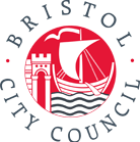Impact Review 2024-25: Self-harm Matters HIT
The Self-harm Matters HIT brings together researchers, practitioners and public health professionals with an interest in self-harm and suicide prevention, alongside those with lived experience. The HIT aims to support access to services for those who self-harm, increase awareness of what can cause self-harm, and reduce presentation to emergency departments through tailored pathways that support access to mental health services. Here are highlights from the HIT in 2024-25.
Credit: Camille Aubry, Digital Dialogues project






